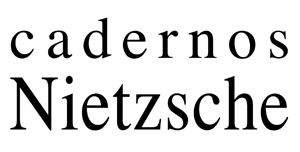Resumo em Português:
Resumo Estabelecida em Assim falava Zaratustra, a associação dos conceitos de vida, valor e vontade de potência se revela rica em consequências para o pensamento de Nietzsche. Nosso objetivo é investigar como essas noções operam na sintomatologia nietzschiana, procedimento que consiste em avaliar o valor dos valores, tomando-os como sinais de vida ascendente ou decadente. Esperamos mostrar que um modo de estimar valores só é considerado superior se traduz uma afirmação da concepção nietzschiana de vida ascendente. Por fim, contamos sustentar que esse critério para avaliar o valor dos valores implica, ele mesmo, valores, o que o torna injusto.
Resumo em Inglês:
Abstract The association of notions of life, value and will to power established in Nietzsche’s Thus Spoke Zarathustra reveals a great amount of consequences to the author’s philosophy. In this paper we propose to investigate how these concepts constitute a necessary condition for the Nietzschean symptomatology, which is a procedure that evaluates the value of the values, considering them as signs of an ascending or declining life. Furthermore, we attempt to demonstrate that the values may solely be regarded as superior and ascending if they translate an affirmation of the Nietzschean conception of ascending life. Finally, this study will support the idea that the criterion to evaluate the values itself implies other values, which renders it unjust.
